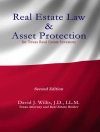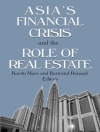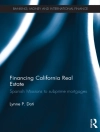New Economic Thinking and Real Estate offers a modern and distinctive approach to forecasting and understanding property markets. With this book, students will develop an intuitive ability to interpret economic indicators and acquire the confidence to assess property markets. The book is divided into three parts: Part A: Resource choices – deals with microeconomics; Part B: Financial Systems – seeks to make sense of the macroeconomic scene and Part C: Measuring and Forecasting.
Jadual kandungan
Foreword viii
Introduction: Setting the Scene 1
The storyline 3
Hindsight is a wonderful thing 5
The writing on the wall 7
PART A RESOURCE CHOICES 11
1 Basic Economic Principles 13
Definition of economics 14
Resources (or factors of production) 15
Income and wealth 19
Investment 20
Property in a resource context 22
History of economic thought 25
Food for thought: The problems of inequality 29
2 The Language of Profit 32
It’s all about profit 33
The residential developer’s dilemma 34
It’s all about yields 37
Timing is everything 38
Socially responsible investment 41
Costs and price 42
The circle of blame 45
Food for thought: Is profit the measure of everything? 45
3 Real Estate Markets 49
Common sense price signals 50
The Marshallian Cross 52
The concept of equilibrium 54
Property markets 56
The basics of demand 60
Demand for housing 61
Demand for commercial property 64
Demand for government property 65
The basics of supply 66
The stock of housing 67
Stock of commercial property 70
Stock of government buildings 72
Supply and non?]price determinants 73
Know your markets 75
The unethical market? 77
Food for thought: Behavioural real estate economics 79
PART B FINANCIAL SYSTEMS 83
4 The Macroeconomy and Financial Flows 85
The circular flow model 86
The modern flow of funds model 88
The perils of debt 91
Food for thought: Flow of funds – what goes around comes around 93
5 Central Banks and Monetary Policy 99
Ideology: In whose interests? 101
What goes on in the traditional banking sector? 102
The fairytale story of banking 103
The market for derivatives: Weapons of mass destruction 107
Alphabet soup 108
Specialised real estate funding options 111
Central banks 113
Monetary policy before 2008: The conventional approach 113
Monetary policy since 2008: The unconventional approach 118
Food for thought: Cosmetic accounting 124
6 The Financial Recession 127
The language of recessions and recovery 128
A new world 129
Herman Minsky (1919-1996) – ahead of his time? 131
Why did no one see it coming? 134
Let the facts speak for themselves 134
Central bank: Lender of last resort 137
Where to look in the future 138
Food for thought: Where is the next crisis coming from? 140
PART C MEASURING AND FORECASTING 143
7 Central Government and Fiscal Policy 145
Macroeconomic targets 146
Central government 152
Fiscal policy 154
Austerity economics 159
Food for thought: An ageing population 161
8 Measuring and Forecasting Economic Activity 165
Some general principles to watch out for 166
Measuring economic growth 168
Measuring income per head 170
Measuring income distribution 172
Measuring inflation 174
Measuring unemployment 179
Measuring international transactions 183
Measuring business fluctuations 186
Forecasting the economy 189
Forecasting property markets 191
Food for thought: The new (High Street) economy 194
Afterword 199
Glossary 202
Webnotes 210
References and Recommendations 215
Index 222
Mengenai Pengarang
Danny Myers is an economist who has taught built environment students at undergraduate and post-graduate levels in the UK and abroad. He is an experienced lecturer and author from the Department of Construction and Property at the University of the West of England, and the Department of Architecture and Civil Engineering at the University of Bath. His recent research supported Kalle Lasne, the founder of the Occupy movement.












